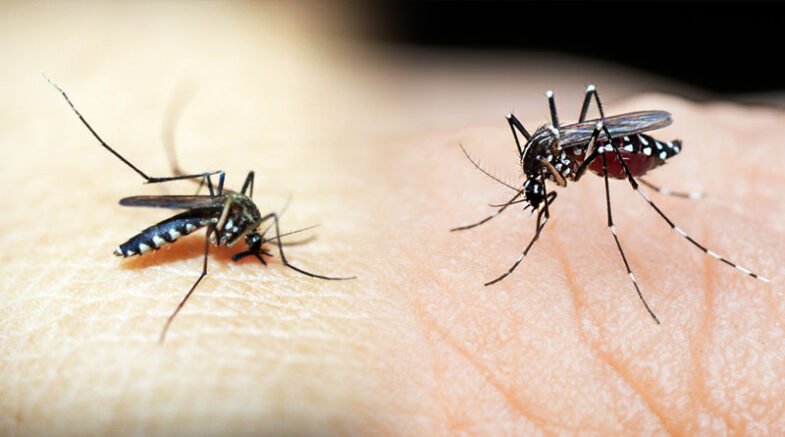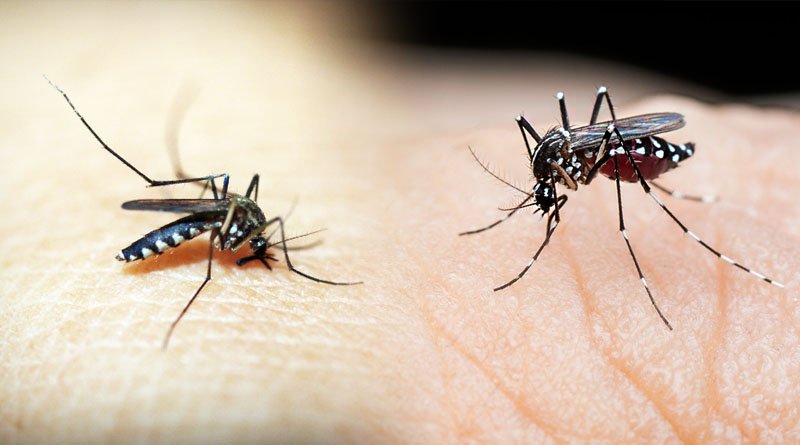There are several factors that contributed to the spread of dengue virus in Pakistan, these include deforestation, uncontrolled urbanization, agriculture, and different household practices.

According to the World Health Organization (WHO), dengue has primarily affected humans in South Asia. The healthcare sector reports that dengue virus in Pakistan has lethal effects among the population due to unhealthy food, edibles, and poor sanitation.
Dengue virus (DENV) causes a deadly dengue virus infectious disease that leads to severe public health concerns. The first outbreak of dengue occurred in 1779 in Egypt, Indonesia, Jakarta, and Cairo. The prevalence of dengue infection showed 30 folds increase in the last 50 years.
Globally, 3,643,763 cases and 3,380 deaths due to dengue virus infection are reported since 23 November 2022. The region of Asia reported 1,024,726 cases and 2,197 deaths, Africa reported 3,427 cases and 17 deaths, Australia and the Pacific reported 2,517 cases and no deaths, and the USA reported 2,551,093 cases and 1,169 deaths by November 2022.
In Pakistan, 25,932 cases and 62 deaths were reported between January and September 2022. The increased prevalence during mid-June was due to excessive flooding and another factor is the higher migration rate between Pakistan, Iran, and Afghanistan because of trade.
By September 2022, among the total 25,932 cases, 14% were reported from Balochistan, 25% from KPK, 29% from Punjab, and 32% from Sindh. About 80% of cases were asymptomatic.
Dengue virus is transmitted by Aedes aegypti and Aedes albopictus which are present indoors, in uncovered containers filled with water, and outdoors feeding on humans respectively.
The transmission of the virus occurs through mosquito bites, from an infected person to a mosquito to a healthy person, from pregnant mother to baby, through blood transfusions, and organ transplantation.
Symptoms of infection appear within 4–7 days, some infected persons do not show symptoms and others show febrile illness.
Dengue fever patient suffers from joint pain, body rashes, headache, low platelets, and white blood cell levels, muscle pain, and lymph node swelling. Dengue hemorrhagic fever is characterized by increased permeation of blood vessels, causing leakage.
The dengue shock syndrome is characterized by severe loss of blood and other body fluids, heart pumping becomes difficult causing the decreased flow of atrial blood leading to tissue injury and failure of organs. Various tests are used to detect dengue infection including PCR, ELISA, complement fixation, and neutralization tests.
Currently, no antiviral drug or vaccine is available to treat dengue infection. But certain measures are taken such as rest, taking painkillers, and drinking plenty of water and fluids.
Several trials and studies are being done using biotechnological approaches for its treatment. One of them is the use of stem cell therapy. It is a regenerative therapy used for repairing damaged cells and preventing diseases using stem cells.
A study was conducted on mice infected with dengue in Malaysia. The administration of these cells showed increased liver functions and damaged cell repair cells. But this study is currently limited and requires more research.
No specific treatment is available for dengue virus in Pakistan. Doctors recommend painkillers with acetaminophen, bed rest, and plenty of water and fluids. Doctors advise to not use medicine with aspirin, ibuprofen, and other non-steroidal anti-inflammatory drugs (NSAIDs).
There are several factors that contributed to the spread of dengue virus in Pakistan, these include deforestation, uncontrolled urbanization, agriculture, and different household practice like water-filled containers, and plant pots.
One of the major factors is climate change, which contributes to increased temperature and precipitation favorable for the spread of dengue by mosquitoes.
Pakistan governmental health departments implement health measures to prevent the spread of infection such as insecticidal sprays to kill mosquito larvae, waste management, and destroying mosquito breeding sites.
WHO supports the Pakistan government to establish data and report collection centers, strengthen disease surveillance in all hospitals, provides diagnostic kits, pesticides, medicines, health care providers, and trainees. WHO also collaborates with the Pakistan health ministry to raise campaigns.
There are several control measures to prevent and control the infection of dengue virus in Pakistan, such as prevention of breeding of mosquitoes in water-filled containers, the use of coils, vaporizers, and repellents, wearing full-sleeved clothes, monitoring and surveillance of mosquitoes and the virus.
Anti-Dengue Day is celebrated on 2nd July to spread awareness about a dengue virus infection, and encourage the public to take part in dengue control.
